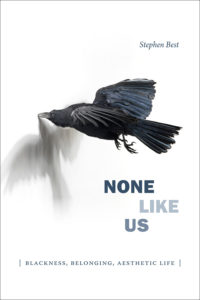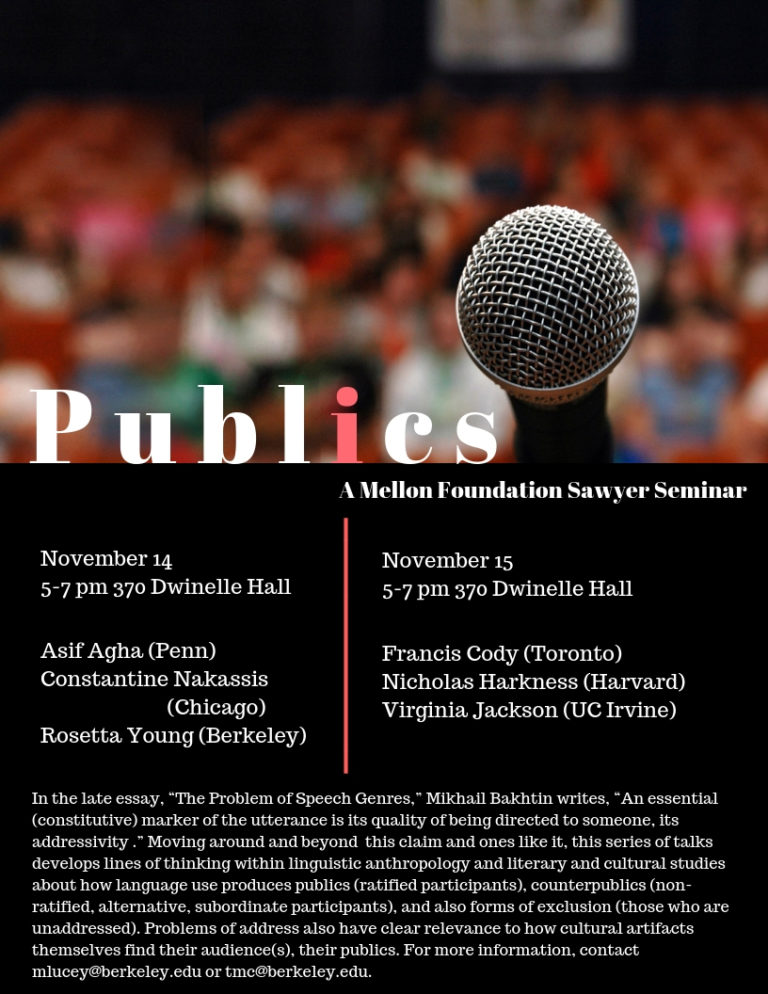by Jonathan Kramnick
The essay begins:
The desire to overcome boundaries between disciplines of knowledge and to integrate fields of study is nothing new. Specialization has always had its discontents, and programs for interdisciplinary cooperation or the creation of new disciplines out of the synthesis of old ones are a perennial feature of academic life. In recent years, however, the idea of bringing together fields of study has made a turn to an argument against the very existence of disciplines and departments in the first place. Faced with the task of reforming academic institutions and the work that goes on inside them, many advocates for interdisciplinary approaches have come to maintain that a carved-up institution gets in the way of understanding and fails to serve students. I will argue in this essay that this strong version of interdisciplinarity rests on a mistake: namely, that the separate disciplines have a common object to which they can be reduced or oriented. I will further argue that this mistake extends even to the weaker forms of interdisciplinarity with which we have been long familiar and which have independently compelling virtues. Clarifying this mistake would begin with the recognition that a pluralistic array of disciplines matches up with a pluralistic vision of the world: endocrine cells for the biologists, tectonic plates for the geologists, librettos for the musicologists, and so on. Fixing it would begin with the recognition that the best way to be interdisciplinary is to inhabit one’s discipline fully.
The present-day quarrel with disciplines has several varieties: from ostensibly scientific reductionism, to the management theory popular in some corporations, to a historicism that overlaps with both. In what follows, I’ll describe these movements one at a time, point to their overlapping premises, and provide some account of what I believe to be their origins and goals. What I have to say would apply, in principle, to the full range of study from art history to zoology. And yet no accounting for such things occurs in the abstract. There is a reason literary scholars so often feel that calls for them to be interdisciplinary are attacks on what they do. Arguments that undercut the rationale for separate disciplines of study apply unevenly to those with depleted capital. Departments of English are far more often called to explain the reason for their existence and far more often encouraged to coordinate their work with what’s going on elsewhere in the academy or the world than departments of electrical engineering. That this is so is hardly surprising, but is worth some thought.
Let me begin with some propositions.
- A discipline is an academic unit. It is neither a natural kind nor an arbitrary relic of the history of higher learning. Rather, any given discipline is a body of skills, methods, and norms able to sustain internal discussions and perform explanations in a way subject to its own consensus acts of judgment.
- The world does not have a single order that is reducible to biology or physics. Some things are known only at their own level of explanation. These things are equally real. I will call this a principle of ontological pluralism.
- Following from the first and second propositions, disciplines explain the part of the world to which they are directed and with respect to which they are organized. I will call this a principle of explanatory pluralism.
- Following from the third proposition, no one discipline should be reducible to another because such reduction would eliminate the method and norms adequate to any particular level of explanation.
These propositions add up to an apology for the disciplines and to a way of modeling relations among them. Such modeling would be interactive not reductive, even when relations go very deep. It would take as its premise that each discipline has something to contribute to matters of shared concern in virtue of its own methods and objects. For reasons that will become clear, we might consider this model to propose a horizontal relation among the disciplines. For now it is perhaps enough to say that the interdisciplinary fallacy tells us not only about intellectual history and the political economy of the university but also about the nature and organization of what we do. Continue reading …
This essay examines various arguments against the existence of disciplines, from scientific reductionism to the new corporate university to historicism, and proposes in their place a defense of disciplinary life as an epistemic and ethical ideal.
 JONATHAN KRAMNICK is Maynard Mack Professor of English at Yale University. His new book, Paper Minds: Literature and the Ecology of Consciousness, will be published this year by the University of Chicago Press .
JONATHAN KRAMNICK is Maynard Mack Professor of English at Yale University. His new book, Paper Minds: Literature and the Ecology of Consciousness, will be published this year by the University of Chicago Press .
 It passes for an unassailable truth that the slave past provides an explanatory prism for understanding the black political present. In None Like Us Stephen Best reappraises what he calls “melancholy historicism”—a kind of crime scene investigation in which the forensic imagination is directed toward the recovery of a “we” at the point of “our” violent origin. Best argues that there is and can be no “we” following from such a time and place, that black identity is constituted in and through negation, taking inspiration from David Walker’s prayer that “none like us may ever live again until time shall be no more.” Best draws out the connections between a sense of impossible black sociality and strains of negativity that have operated under the sign of queer. In None Like Us the art of El Anatsui and Mark Bradford, the literature of Toni Morrison and Gwendolyn Brooks, even rumors in the archive, evidence an apocalyptic aesthetics, or self-eclipse, which opens the circuits between past and present and thus charts a queer future for black study.
It passes for an unassailable truth that the slave past provides an explanatory prism for understanding the black political present. In None Like Us Stephen Best reappraises what he calls “melancholy historicism”—a kind of crime scene investigation in which the forensic imagination is directed toward the recovery of a “we” at the point of “our” violent origin. Best argues that there is and can be no “we” following from such a time and place, that black identity is constituted in and through negation, taking inspiration from David Walker’s prayer that “none like us may ever live again until time shall be no more.” Best draws out the connections between a sense of impossible black sociality and strains of negativity that have operated under the sign of queer. In None Like Us the art of El Anatsui and Mark Bradford, the literature of Toni Morrison and Gwendolyn Brooks, even rumors in the archive, evidence an apocalyptic aesthetics, or self-eclipse, which opens the circuits between past and present and thus charts a queer future for black study. Stephen Best is Associate Professor of English at UC Berkeley. His research pursuits in the fields of American and African American criticism have been closely aligned with a broader interrogation of recent literary critical practice. Specifically, his interest in the critical nexus between slavery and historiography, in the varying scholarly and political preoccupations with establishing the authority of the slave past in black life, quadrates with his exploration of where the limits of historicism as a mode of literary study may lay, especially where that search manifests as an interest in alternatives to suspicious reading in the text-based disciplines.
Stephen Best is Associate Professor of English at UC Berkeley. His research pursuits in the fields of American and African American criticism have been closely aligned with a broader interrogation of recent literary critical practice. Specifically, his interest in the critical nexus between slavery and historiography, in the varying scholarly and political preoccupations with establishing the authority of the slave past in black life, quadrates with his exploration of where the limits of historicism as a mode of literary study may lay, especially where that search manifests as an interest in alternatives to suspicious reading in the text-based disciplines.


 JONATHAN KRAMNICK
JONATHAN KRAMNICK